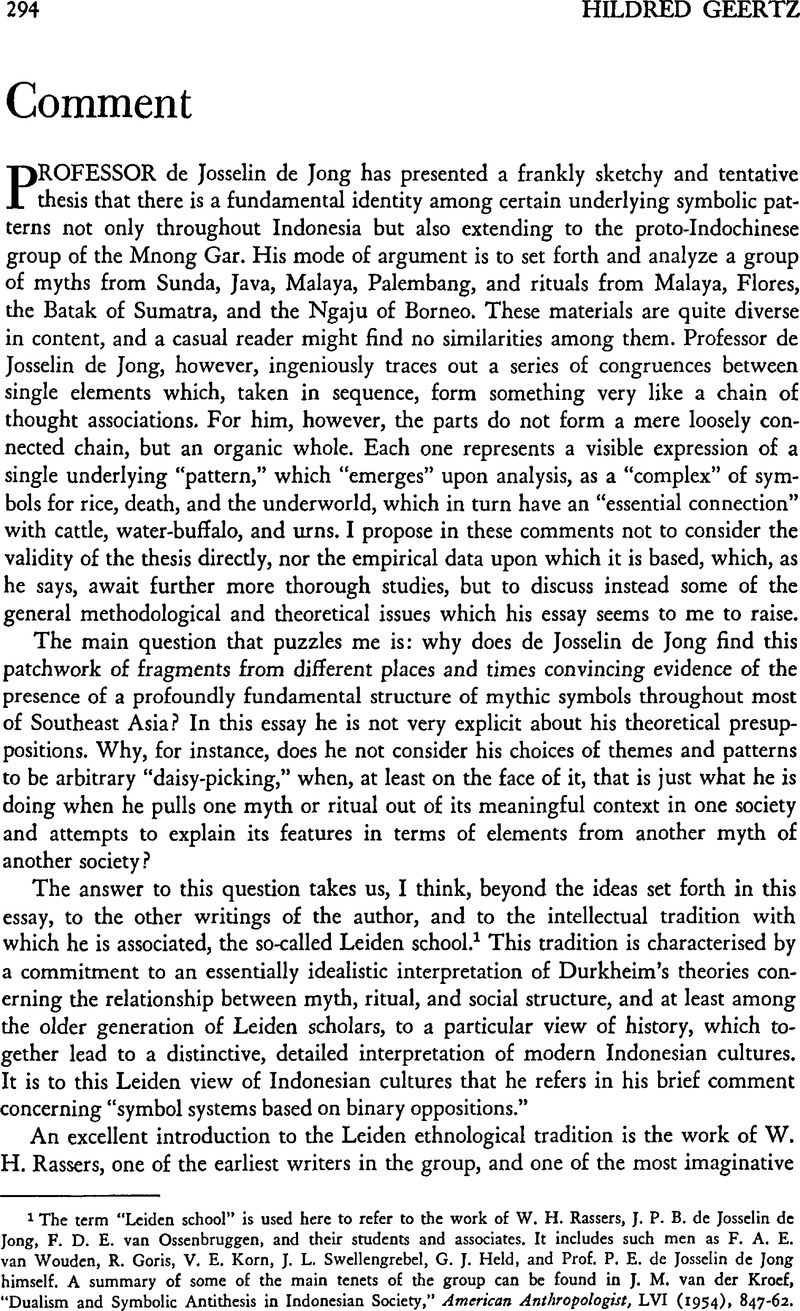Published online by Cambridge University Press: 23 March 2011

1 The term “Leiden school” is used here to refer to the work of W. H. Rassers, J. P. B. de Josselin de Jong, F. D. E. van Ossenbruggen, and their students and associates. It includes such men as F. A. E. van Wouden, R. Goris, V. E. Korn, J. L. Swellengrebel, G. J. Held, and Prof. P. E. de Josselin de Jong himself. A summary of some of the main tenets of the group can be found in van der Kroef, J. M., “Dualism and Symbolic Antithesis in Indonesian Society,” American Anthropologist, LVI (1954), 847–62CrossRefGoogle Scholar.
2 Rassers, W. H., Panji, The Culture Hero: A Structural Study of Religion in Java, Koninklijk Instituutvoor Taal-, Land-, en Volkenkunde, Translation Series 3, Martinus Nijhoff: The Hague, 1959.CrossRefGoogle Scholar
3 Durkheim, Emile and Mauss, Marcel, Primitive Classification, trans, by Needham, Rodney. Cohen and West: London, 1963Google Scholar.
4 Contrary to de Josselin de Jong's implication that most previous studies in Bali have found evidence of binary oppositions in Balinese thought, there have been a number of excellent scholars who seem not to have done so. The work of such nineteenth century writers such as R. Friedrich, R. van Eck, and F. A. Liefrinck, despite their deep insight into Balinese culture contains no clear reference to such dualism, and they seem to have seen Balinese culture in rather different terms. The more recent work of such American anthropologists as Gregory Bateson, Margaret Mead, and Jane Belo has not mentioned it. Outside of Bali, there are many studies in which theories about dualism play no role; For example, those of Snouck-Hurgronje on Java and Atjeh, Cora Du Bois on Alor, H. Th. Chabot on South Celebes, J. D. Freeman and W. R. Geddes on Borneo. The approach of the Leiden school is thus not so universally accepted in Indonesian scholarship as Professor de Josselin de Jong represents it to be.